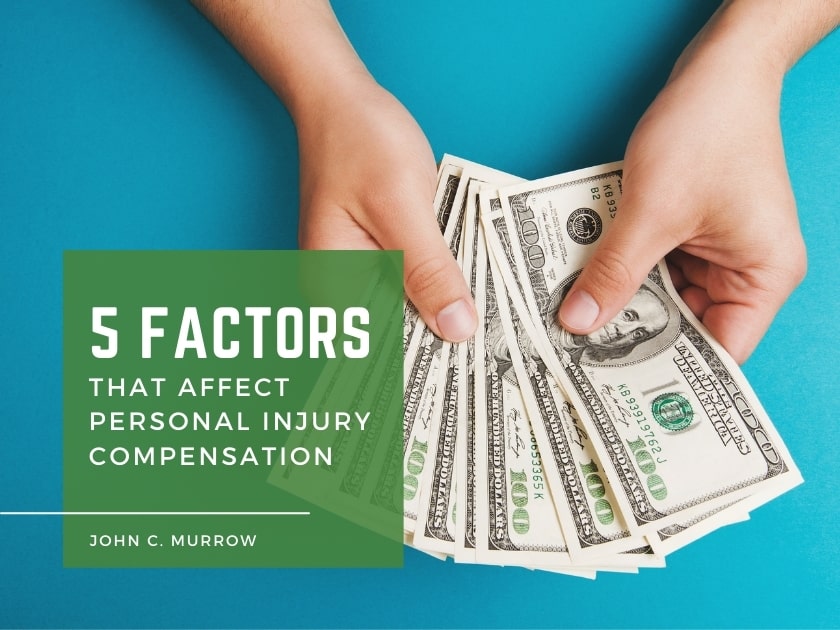If you're thinking of filing for a personal injury claim, you probably want to know how much compensation you can receive for your pain and suffering.
Many factors can affect the compensation you receive for a personal injury claim. Here are 5 of the most common factors impacting personal injury compensation:
1. Severity of Your Injuries
The most critical factor of a personal injury claim is the severity and extent of your injuries. Your injuries will be categorized into either hard or soft tissue damages.
Hard tissue injuries result in damage to the bones or teeth. This type of injury qualifies for higher compensation due to the expensive treatments and longer recovery time. Additionally, such injuries produce intense pain and suffering to the victims for a prolonged period of time. Examples of hard tissue damages are broken bones, joint injuries, and limb amputations.
Soft tissue damages refer to injuries to the muscles, tendons, and ligaments. They usually receive lower compensation because they heal quickly, and some do not require extensive medical treatment. However, soft tissue injuries might leave lasting effects such as limited range of motion or scar tissues.
4. Emotional and Psychological Distress
Physical injuries and economic losses are not the only damages you might obtain in a negligence case. Emotional and psychological distress can also significantly impact your life after the accident. Examples of emotional distress include depression, anxiety, and sleeplessness.
Emotional or mental trauma might be challenging to prove, but it's not impossible. You should seek help from a reputable mental health professional who can document your symptoms and testify how the accident caused emotional and mental suffering in your life.
5. Liability
One of the most important factors affecting personal injury compensation is the degree of liability assigned to each of the parties involved.
If the other party is proven to be 100% at fault, then you, the plaintiff, will receive the full compensation awarded in the case. But, in a comparative negligence state such as Florida, your compensation can be reduced if you are partially at fault. For example, if you are proven to be 30% at fault, you'll only receive 70% recovery of damages.
This is why it is important that you do not discuss the accident with the other party or admit any amount of fault before consulting an attorney. Let your lawyer know if you think you may be partially at fault for the accident. Your personal injury attorney can help you understand the law and collect the evidence for you to present your case in the most accurate and favorable light for you.

